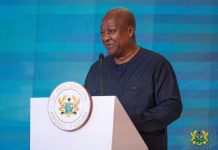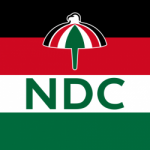Vote counting began in Mozambique on Wednesday evening for an election that is widely anticipated to result in another victory for the ruling Frelimo party, which has held power since 1975.

Frelimo has faced persistent allegations of rigging past elections, a claim the party denies. The complete results could take up to two weeks to be released.
At a polling station in a school in Maputo, the coastal capital, election observers watched as officials unsealed plastic ballot boxes and began tallying votes using chalk on a blackboard.
Among the four candidates vying to succeed President Filipe Nyusi, who is stepping down after serving the two terms permitted by law, Daniel Chapo, a 47-year-old lawyer, is considered the frontrunner. He is seen as a safe choice for business and a fresh face for the Frelimo party.
Chapo’s primary competition is expected to come from Venancio Mondlane, an independent candidate popular with younger voters. Former rebel commander Ossufo Momade represents the official opposition party, Renamo, which typically finishes a distant second.
Polling closed at 6 p.m. (1600 GMT) after a peaceful voting day. The European Union and the local civil society group Mais Integridade reported no major issues during the voting process.
However, disputes could arise in the coming days, cautioned Joseph Hanlon, an adviser to Mais Integridade, which oversees one of the country’s largest election observation missions.
“Polling day always runs smoothly, but the count is much more complicated,” he said.
Any contested outcome could lead to protests similar to those that erupted after Frelimo’s sweeping victory in last year’s municipal elections, which were met with a forceful crackdown.
Voters in the nation of 35 million highlighted poverty and lack of development as their primary concerns, along with an Islamist insurgency in the north that has displaced thousands and halted multi-billion-dollar gas projects.
“We will ask the winner to end the conflict in Cabo Delgado because our grandsons are dying… and we don’t want this to continue,” said Rosa Tembe, a 72-year-old widow.
Chapo, accompanied by his wife, was among the first to cast his vote in a school in the coastal city of Inhambane. “I want to thank the people of Mozambique for this opportunity we have today,” he told reporters.
Mondlane emphasized that the youth of the country would not tolerate fraud. “I deeply believe that this time will not be like other times,” he said after voting in the middle-class neighborhood of Malhangalene in Maputo, where he resides.
However, voters like 28-year-old Keila Sitoe expressed hope for change but admitted to skepticism. “We don’t feel the energy. We are young, and things are difficult,” she said.
























































![[FREE FREE MONEY] Predict and Win a Guaranteed GH¢200 From Us EVERY WEEK](https://wordpress.ghanatalksradio.com/wp-content/uploads/2022/02/Predict-and-Win-Final-09-03-2021-218x150.jpg)
![[Predict & Win – 8th/Oct.] WIN A Guaranteed ¢200 From Us This Week](https://wordpress.ghanatalksradio.com/wp-content/uploads/2021/10/maxresdefault-16-218x150.jpg)
![[Predict & Win – 2nd] WIN A Guaranteed ¢200 From Us This Week](https://wordpress.ghanatalksradio.com/wp-content/uploads/2021/09/maxresdefault-50-218x150.jpg)
![[Predict & Win – 25th] WIN A Guaranteed ¢200 From Us This Week](https://wordpress.ghanatalksradio.com/wp-content/uploads/2021/09/maxresdefault-36-218x150.jpg)
![[Predict & Win – 18th] WIN A Guaranteed ¢200 From Us This Week](https://wordpress.ghanatalksradio.com/wp-content/uploads/2021/09/maxresdefault-23-218x150.jpg)









![[National cathedral] See full list of churches that have contributed since 2018](https://wordpress.ghanatalksradio.com/wp-content/uploads/2020/09/Ghana-National-Cathedral-GhanaTalksRadio-100x70.jpg)



